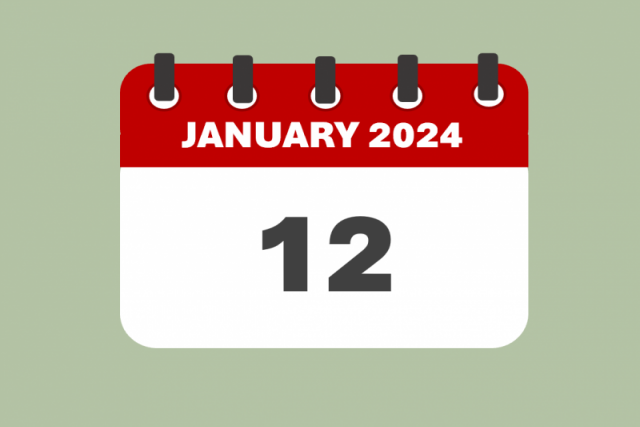NZFVC Weekly Quick Reads: 12 January 2024
Fri 12 Jan 2024
This Quick Reads covers: • E Tū Whānau Rangatahi Film Challenge • He Waka Eke Noa Final Report • Review of health and wellbeing qualifications • Consultation on increase to Social workers fees and levy • Oranga Tamariki section 7aa 2023 progress report • New report on Oranga Tamariki Complaints Process • Report revealing state of digital harm in Aotearoa • Report details outcomes for people with intellectual disabilities • New study on ethnic specific IPV rates in Aotearoa • Evaluation of Shama Ethnic Women's Trust prevention programme • New report on intersection of insurance and violence

NZFVC Quick Reads: 12 January 2024
Welcome to our new Quick Reads format. Each week we share selected news bites relevant to family violence and sexual violence in Aotearoa. This is a new format and we welcome your feedback. Let us know what you think at info@nzfvc.org.nz. See all past NZFVC Quick reads.
E Tū Whānau Rangatahi Film Challenge accepting applications
The 2024 E Tū Whānau Rangatahi Film Challenge have announced they are now accepting submissions to be screened at the E Tū Whānau Rangatahi Film Awards on 22 March 2024 in Ōtaki. Submissions are open to rangatahi between the ages of 12 and 24. The film should be no longer than 5 minutes and must present the creator’s perspectives as young person in Aotearoa, using one of the 6 E Tū Whānau values as their starting point. The deadline for submission is 20 February 2024. The Rangatahi Film Challenge seeks to foster the next generation of Māori leaders in the film industry. Follow this link for more information on the submission process.
Final report for He Waka Eke Noa published
The final report, He Waka Eke Noa: Māori Cultural Frameworks for Violence Prevention and Intervention (2023), published and hosted by Tū Tama Wahine o Taranaki, is now available. The project emerged out of a desire from Iwi and Māori service providers for a greater understanding of the role of cultural frameworks of violence for prevention and intervention. The Kaupapa Māori project focused on Māori understandings of wellbeing and how it is affected by violence. He Waka Eke Noa also features the first national Māori survey focused on experiences of violence.
Review of qualifications relating to family violence
Toitū te Waiora | Community Health Education and Social Services, one of the 6 Workforce Development Councils, is reviewing 8 Health and Wellbeing qualifications. Toitū te Waiora are asking for feedback through a survey. Included in the 8 qualifications being reviewed is the New Zealand Certificate in Health and Wellbeing (Level 3) which includes the Integrated Practice (Family and Whānau Harm) strand, the New Zealand Certificate in Health and Wellbeing (Social and Community Services) (Level 4), and the New Zealand Certificate in Health and Wellbeing (Peer Support) (Level 4). Follow the link to register your interest and take part in the Health and Wellbeing Survey.
Social Workers Registration Board consult on proposed increase to fees and levy
The Social Workers Registration Board (SWRB) is consulting on proposals to change their fees and the disciplinary levy for social workers. The SWRB have organised 2 Zoom question and answer sessions on 18 and 23 January 2024 and a document with the information on the proposed changes and consultation. Links to these, as well as information on how to submit feedback, can be found at the SWRB Fees and Disciplinary Levy: Consultation 2023 webpage. The closing date for submissions has been extended to 7 February 2024.
Oranga Tamariki section 7aa 2023 progress report
Oranga Tamariki released their Section 7AA report – Improving outcomes for tamariki Māori 2023 in December 2023. The report shows “incremental” progress is being made to improve outcomes for tamariki, rangatahi, their whānau, Hapū and Iwi. For more information, see Waatea News’ coverage, Slow progress in Oranga Tamariki reform.
New report from VOYCE – Whakarongo Mai on Oranga Tamariki Complaints Process
VOYCE – Whakarongo Mai were commissioned by Oranga Tamariki, as part of the Manaaki Kōrero programme, to answer the question: What do tamariki, rangatahi and whānau need to feel safe, comfortable and confident raising their needs and concerns and providing feedback to Oranga Tamariki? The final report, Manaaki Kōrero: He mana Tamariki, He mana whānau, He mana tangata e! (2023), shares the insights and experiences of 61 tamariki and rangatahi and 38 caregivers and whānau speaking on what is needed for a feedback and complaints system that is “fit-for-whānau”. See our related news story Oranga Tamariki: how to make a complaint, new reports and related news.
Netsafe’s 2023 Annual Population Survey results reveal state of digital harm in Aotearoa
Netsafe has released its 2023 Annual Population Survey results, revealing the state of digital harm in Aotearoa. Four reports were produced from the survey results covering Trended results, Online hate speech, the Māori population, and the General population. These highlight that Māori, people under 30, people who are neurodiverse, and the LGBTQIA+ community are disproportionately affected by digital harm in Aotearoa. For commentary from Amokura Panoho, Pou Tātaki Mātauranga Māori at Netsafe, responding to the survey findings, see her interview with Te Ao news, Nearly half of Māori experience online harm, survey finds. For more information, see Netsafe’s media release on the results.
IHC report highlights health and wellbeing outcomes for people with intellectual disabilities, including violence related outcomes
A new report released by the IHC Group, From Data to Dignity: Health and Wellbeing Indicators for New Zealanders with Intellectual Disability (2023), reveals people with intellectual disabilities are experiencing “poorer outcomes across a wide range of social and economic outcomes.” The IHC group supports and advocates for people with intellectual disabilities. Key findings for the violence sector, highlighted in the report’s media release, include: “parents with an intellectual disability are 15 times more likely to have their child placed into state care than general population”; “almost 20% of children with an intellectual disability were reported by police as being present during a domestic violence call”; and, “intellectually disabled people are 3.3 times more likely to be a victim of crime”.
2023 study finds IPV rates high across all ethnic groups, but significant disparities exist for Māori
A new article drawing on the He Koiora Matapopore | 2019 NZ Family Violence Study, Ethnic-specific prevalence rates of intimate partner violence among women in New Zealand (2023) has been published in the Australian and New Zealand Journal of Public Health. The study found that lifetime prevalence of intimate partner violence across all ethnic groups in Aotearoa is high, with over half of all women reporting any intimate partner violence (55.8%). Though, substantial ethnic disparities exist, with wāhine Māori reporting the highest prevalence of intimate partner violence (64.6%), followed by NZ European women (61.6%). For other related articles, see our entry covering He Koiora Matapopore on our website.
Shama Ethnic Women’s Trust releases results of the evaluation of their Sexual Violence Prevention (SVP) Programme
Shama Ethnic Women’s Trust have released the report, Evaluation of the Sexual Violence Prevention Programme (2023). The evaluation’s purpose was to gauge the impact of their Sexual Violence Prevention programme for its participants and the communities they represent.
Report from Australian insurer shows insurance products often used to coerce and control victim-survivors of violence
A new report from Australia, Understanding family violence and the risks of insurance (2023), published by the insurer, Allianz Australia, found that insurance products were being used commonly by perpetrators of violence to exert control over the victim-survivor. The report details the top 7 insurance issues and related consumer risk for those experience family violence. The examples include claims being declined due to damage being intentionally caused by a perpetrator named on the policy, or by someone invited into the customer’s home. They also provided a toolkit to help protect victim-survivor’s assets should they chose to separate from the person perpetrating the violence. See an overview of the research findings in the ABC News article Stealing cars, hiding keys, cancelling insurance: UNSW study reveals how domestic violence perpetrators use cars to control and intimidate.





